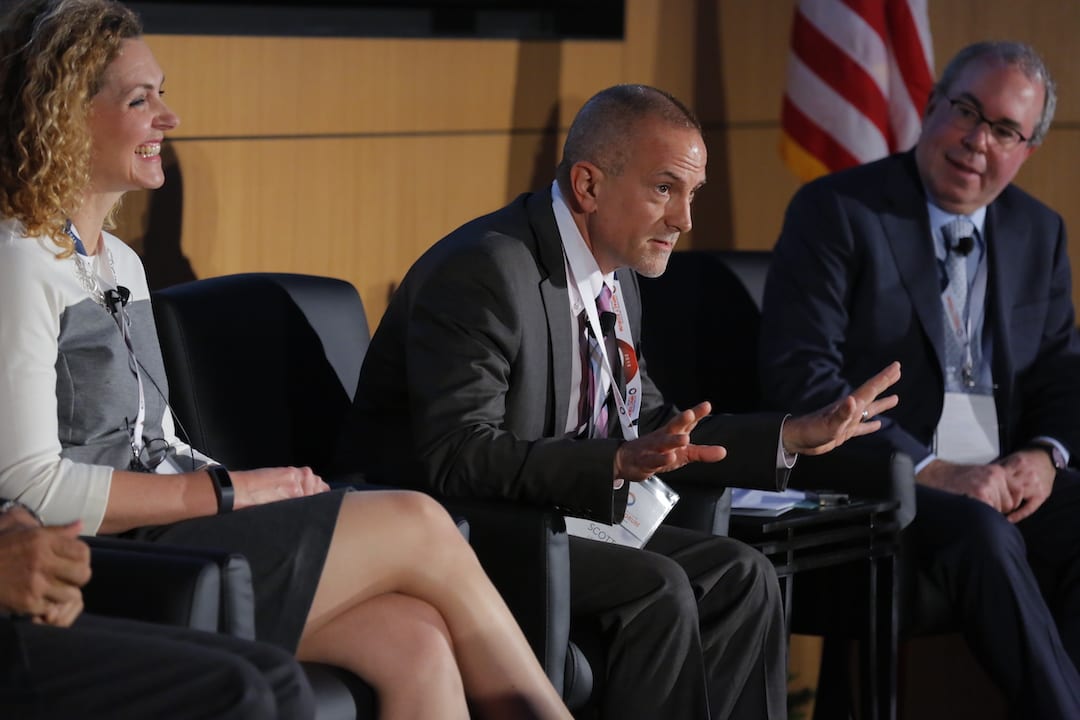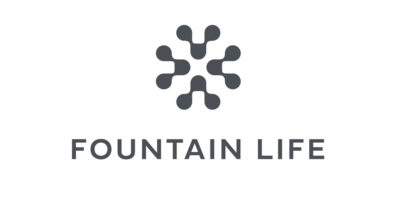
The final day of the 2015 Lake Nona Impact Forum was filled with announcements. The day kicked off with news of the launch of IQ Orlando, a business venture among Tavistock Group, University of Central Florida, AHG Group, and Florida Hospital aimed at recruiting and launching life science companies in the Orlando area. Also announced was a partnership between Lake Nona and wellness builder Delos, which will bring health-focused construction, design practices and other innovations to Lake Nona’s residential and commercial projects. Finally, the Florida Institute of Technology was presented as the latest organization to join the Lake Nona community.
Among the morning’s other highlights, Gloria Caulfield, the Forum’s executive director, discussed the growth rates of chronic disease and the vision of Lake Nona to not only innovate in building a healthier community, but to share that knowledge and design that can improve health across communities nationwide.
Joshua Sharfstein, former secretary of the Maryland Department of Health and Hygiene, extended the healthy communities conversation by explaining how technology can help improve population health. But he also addressed a more sobering and common theme throughout the Forum: the cost of health care. He presented data showing that the cost of health care in this country grows independent of the population’s health. With that realization as a backdrop, he noted the innovative strategies employed across Maryland hospitals, such as capping health care expenditures and pegging them to outcomes.
Next, a panel addressed the notion that reshaping health requires reshaping the environment in which people live. Led by Jason McLennan, CEO, International Living Future Institute, the insightful discussion addressed the impact of today’s mostly sedentary, stress-filled, indoor lifestyles negatively impact health. The panelists – including Lou Lenzi, design director, GE Appliances and Michael Roizen, chief wellness officer, Cleveland Clinic – talked about how re-designing our work and life environments can help improve our health.
Arlin Wasserman, partner at Menus of Change, examined how sustainability and improving health are inexplicably linked. Conversely, he noted the opposite, too – by sharing data explaining that the proteins that produce the most greenhouse gases are also the most detrimental to our health over time. He then lead an interesting discussion on how companies like Jamba Juice, PepsiCo and Canyon Ranch have been able to reduce the calorie counts in the food products they offer.
From food, the discourse moved to activity. Tom Farrey, executive director from the Aspen Institute, introduced a session on the importance of instilling a love of activity in children under the age of 12. The panel – featuring a scientist, former professional tennis player and professional soccer coach – provided examples of how activity at a young age, coaching techniques, and other tactics can be applied to motivating activity in children.
The three-day event’s final speaker, the Honorable Robert McDonald, U.S. secretary of Veterans Affairs, gave a comprehensive overview of the benefits and services provided to veterans by the agency. He emphasized the innovative programs and techniques instituted by VA doctors, including implantable cardiac pacemakers, shingles vaccines, nicotine patches, and artificial limbs that operate from signals in the brain. He then looked ahead and spoke of building partnerships like the ones discussed throughout the Forum, all to improve the care and quality of life for veterans.
As the conference drew to a conclusion – wrapping up three days of presentations on new business ventures, new technologies and new strategies in treating cancer and chronic diseases – the 2015 Lake Nona Impact Forum clearly succeeded in its goal of breaking down barriers and creating ideas that will shape the future of healthcare in our nation.



